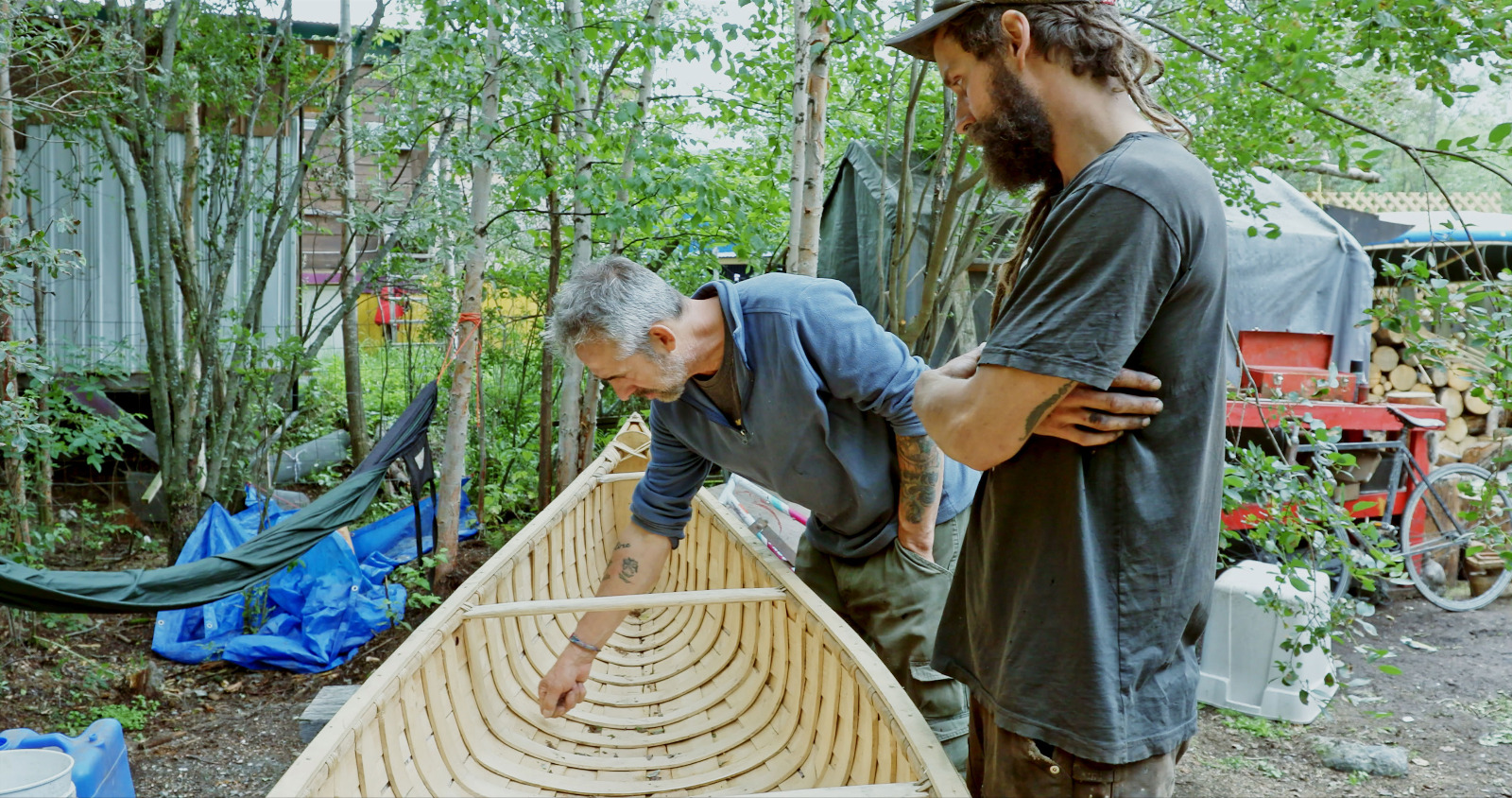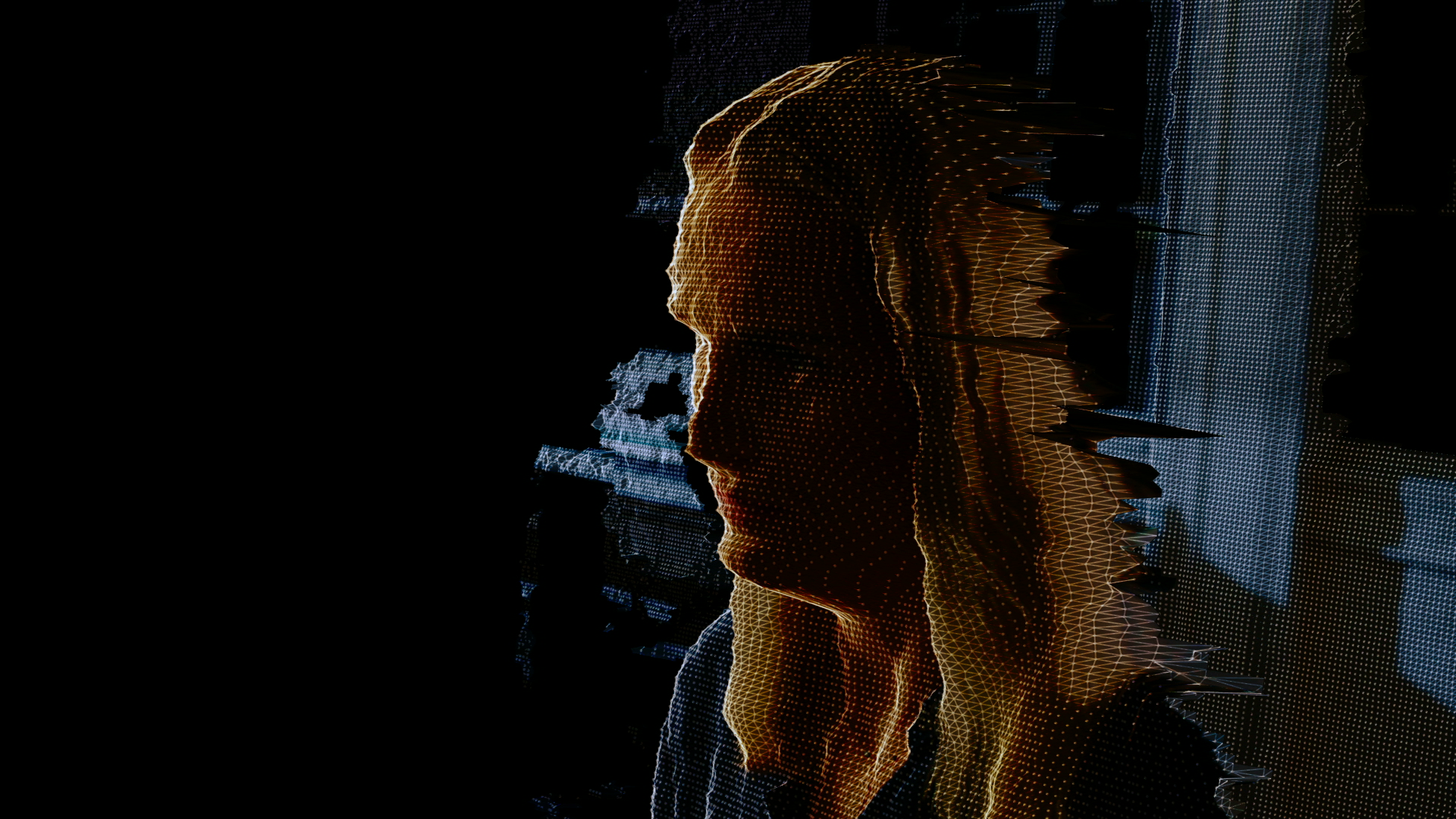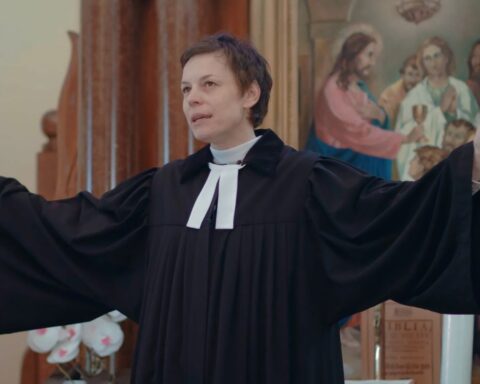Mark Indigenous History Month with a story that reminds of histories built to last in Voices Across the Water. The film, released today for free streaming from the National Film Board of Canada, observes Alaskan Tlingit carver Wayne Price as he passes on his knowledge for the construction of a traditional dugout canoe to his young apprentice, Carcross/Tagish First Nation artist Violet Gatensby. The task is a mammoth endeavour: the carvers first must find the right cedar tree and then make it shipshape by hacking, whittling, and sanding away at it as the canoe takes its form. In other thread, Francophone artist Halin de Repentigny crafts a handmade birchbark canoe. Together, these two stories invite audiences to pause and consider the artistic practices that risk being lost in our fast-paced world.
Directed by Fritz Mueller and written by Teresa Earle, Voices Across the Water takes a cue from the carvers whose craftsmanship fuels the tale. The film slows down and lets viewers witness the nuances of the artistic process. Voices watches as Price and Gatensby painstakingly chip away to perfect every curve and to smooth each groove. These carvers favour a patient regimen and an eye for detail. The documentary appropriately does the same.
“Voices Across the Water makes a relatively mundane and methodical practice dynamic while observing the artists at work,” I wrote while reviewing the film at the Available Light Film Festival earlier this year. “Mueller captures the physical commitment of the labour as they build boats from scratch. Price shares his wisdom with Gatensby and teaches her an elder’s insight. He even gets down into the belly of the boat to help her hack away at the cedar’s meat and to carefully chip at the final, onion-skin-thin layer that separates the scraps from the boat. De Repentigny, meanwhile, creates a shell and carefully sculpts the birchbark around it. Both processes involve patience and precision. So too does Mueller’s approach, which takes a cue from the creators by favouring the handcrafted and artisanal. This is old-school filmmaking with an eye for detail and character.”
Watch Voices Across the Water below from the NFB.
Voices Across the Water, Fritz Mueller, provided by the National Film Board of Canada













